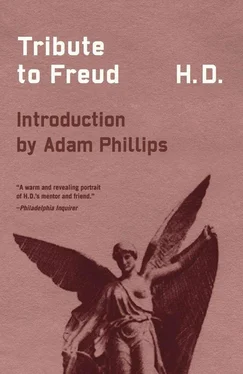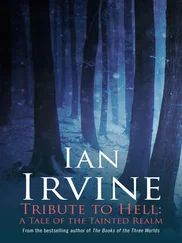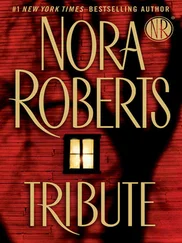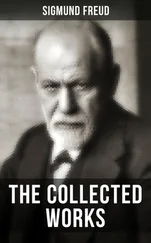The room beyond may appear very dark or there may be broken light and shadow. Or even bodily, one may walk into that room, as the Professor invited me to do one day, to look at the things on his table.
On my father’s table there were pens and ink-bottles and a metal tray for holding the pens. He used different pens for his different inks, black and red. There was a paper-knife of Chinese or pseudo-Chinese design; a squat figure was the handle; a jar or pot on the grotesque’s head held a blade that was the paper-knife, though a fret-work in low relief of leaves and tendrils gave the blade of the paper-knife an added dimension; the paper-knife was a paper-knife, at the same time it was a flat tree or pole with delicate tendrils worked over it or through it. There was an oversize pair of desk-shears, several paper-weights; one of glass showed different pictures reflected in it, if you looked into it in a certain light. It was just glass, it was a paper-weight, but it was a set of prismatic triangles, placed on another set of triangles. When you put it down, it always lay sideways; the peak, where one set of triangles met, pointed to the north pole or the south pole, or might have so pointed. There is the magnifying glass which my brother is still holding in his hand.
“But you know, you children are never to play with matches.” It was one of the unforgivable sins. ( Matches ?) My brother has the answer. The answer is a brave, pert rejoinder, “But we aren’t playing with matches.” He does not give the answer. I stand beside him. My brother is very tall. My head scarcely reaches his shoulder. I have seen the round glass in its metal frame; the straight handle is clasped by a damp, somewhat grubby paw, behind my brother’s back. I do not know, he does not know that this, besides being the magnifying glass from our father’s table, is a sacred symbol. It is a circle and the stem of the circle, the stalk or support of this flower, is the handle of the glass that my brother is clasping behind his back. This is the sacred ankh, the symbol of life in Egypt, but we do not know this — or perhaps our father does know this. He used this very sign, the circle with the supporting straight line, with an added little line, a cross, to indicate the planet Venus. I do not know if our father knows that the ankh is the symbol of life and that the sign he often uses at the head of one of his columns of numbers is the same sign. He writes columns and columns of numbers, yet at the top of one column he will sketch in a hieroglyph; it may stand for one of the Houses or Signs of the Zodiac, or it may be a planet simply: Jupiter or Mars or Venus. I did not know this when I stood beside my brother in the garden. I knew it a long time after but I did not understand it. It is only now as I write this that I see how my father possessed sacred symbols, how he, like the Professor, had old, old sacred objects on his study table. But the shape and form of these objects, sanctified by time, were not so identified. They were just a glass paper-weight, just a brass paper-knife or the ordinary magnifying glass that my brother is still holding in his hand.
What will my brother say? He cannot say, “I brought fire from heaven.” He cannot answer father Zeus in elegant iambics and explain how he, Prometheus, by his wit and daring, by his love of the unknown, by his experimentation with occult, as yet unexplainable forces, has drawn down fire from the sky. It is an actual fact. But my brother has never heard of Prometheus, he doesn’t know any Greek. He has taken the magnifying glass from our father’s study table and that is, possibly, a sin, second only to playing with matches. My father stamps on the flimsy charred paper. There is the smell of burnt paper and the faint trail of smoke in the still air of a late-summer day of the afternoon of the year (perhaps) 1889 or (perhaps) 1901.
I do not remember what my brother says to my father, what my father in his turn says to my brother. “You must not do it again” is implicit anyway. But the ordinary words of their common speech are sometimes above my head. I do not always even understand the words my brother uses. He is a big boy and known to be quaint and clever for his age. I am a small girl and small for my age and not very advanced. I am, in a sense, still a foreigner. There are other foreigners; they arrive from time to time, in our own house, in our grandfather’s house (which is shared by an aunt and uncle), in the house across the street, in other houses, up and down Church Street. These foreigners know even less than I do of the customs of these people about us — civilized or barbaric people. Things happen that these people try to hide from us; a boy drowns in the river, a workman at the steel mill loses a limb, a foreigner or, as they say sometimes at the back door, “a little stranger” has arrived somewhat prematurely somewhere. All these mysterious, apparently unrelated events, overheard hiding under the kitchen table, or gathered or inferred, whispering with other inarticulate but nonetheless intuitively gifted fellow-whisperers of one’s own age, and sometimes a little older, up and down Church Street, have to do with, or in some way suggest, a doctor.
A doctor has a bag with strange things in it, steel and knives and scissors. Our father is not a doctor but he has a doctor’s picture or a picture of doctors in his study. He is quiet and strangely tender when we are ill. He likes to tell people that he hesitated for a time before deciding on his profession, that doctors always say he should have been one of them. His voice is quiet and even and low-pitched. His voice is almost monotonously quiet. He never raises his voice. He is never irritable or angry. I never saw him really angry except two or three times in my whole life, and those were memorable occasions. Lying on this couch in the Professor’s room, I feel that sometime I must recall and annotate (as it were) my father’s anger. But this is not one of those occasions. My father is not angry now but, though the sun is shining and the burnt paper smoldering at our feet, there is an icy chill in the air. “Perhaps,” he may have said (for our father is a just man), “I did not actually forbid you taking the magnifying glass,” for my brother has now handed it back to him. “I know that I have told you not to touch the ink-stand or take away the desk-shears or use the paste-pot for your paper soldiers. It was understood, I thought, that you did not disturb anything on my table.”
There is frost in the air. I sidle nearer to my brother. I am implicated, though in no way blamed.
There is an earlier occasion and again the sun is shining. From the cloth dress my mother wears, I think it must be spring, or it is an Indian-summer day, between seasons at any rate, for my mother wears a cloth dress without a coat. It is not summer, for we go into summer clothes as regularly and as inevitably as people in the tropics. We are subtropic, a town in Pennsylvania, on the map’s parallel, I believe, south of Rome. Winters are cold, summers are hot, so we have the temperament of Nordics and of southerners both, harmoniously blended and altering key or vibration in strict accordance with the seasons” rules — or not, as may be. It is summer anyway in my mother’s face, for she is laughing.
We have been out with her to help her with the shopping or to drop in on one of her many relatives or friends. The town contains scarcely anyone who is not a relative or friend — the “old town” at any rate; and this is the old town, for we are seated on a slight elevation of the pavement, on the curb-stone as it makes a generous curve off Church Street, under the church and on to the stores and hotel and shopping centers of Main Street — I think it was called Main Street; it should be, anyway.
Читать дальше











